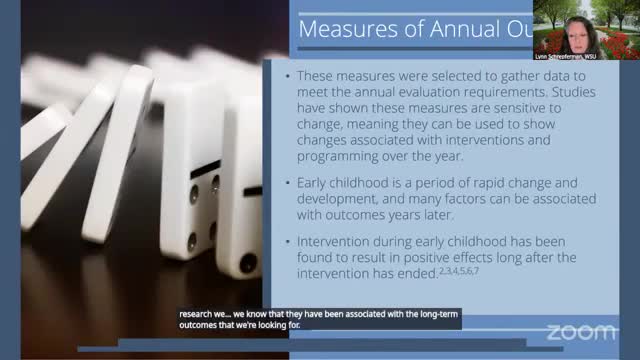State Early Childhood Programs Show Long-Term Benefits for 8,282 Children Across 74 Counties
August 02, 2025 | Children’s Cabinet, Governor's Boards & Commissions, Organizations, Executive, Kansas
This article was created by AI summarizing key points discussed. AI makes mistakes, so for full details and context, please refer to the video of the full meeting. Please report any errors so we can fix them. Report an error »

In a recent meeting held by the Kansas Children's Cabinet & Trust Fund Board, key discussions centered on the significant impact of early childhood interventions on long-term developmental outcomes. The meeting, which took place on August 1, 2025, highlighted the importance of early life skills, positive parenting, and quality early education in shaping children's futures.
As the meeting unfolded, board members reviewed extensive data, revealing that interventions in early childhood yield benefits that extend well beyond the immediate effects. With over a million data points analyzed, the board emphasized the importance of ongoing assessments to ensure that developmental measures remain effective and relevant. The focus on early identification of developmental milestones was underscored as a critical strategy for enhancing school readiness and overall child well-being.
One of the standout topics was the blueprint area dedicated to healthy development. This initiative aims to foster essential skills in children, such as emotional management and positive social interactions. The board shared encouraging statistics, noting that 52% of children initially identified as at risk showed significant improvement after participating in early intervention programs. This progress not only benefits the children but also alleviates potential future costs associated with developmental delays.
The meeting also addressed the strong families blueprint, which focuses on positive parenting practices. Evidence-based parent education programs were highlighted for their role in reducing parental stress and improving child outcomes. The board noted that these programs are voluntary, allowing parents to seek assistance tailored to their individual needs. The positive changes observed in families participating in these programs were particularly noteworthy, with a 16% increase in families meeting positive parenting benchmarks.
In the realm of early learning, the board discussed the critical role of quality education in breaking the cycle of poverty. Research indicates that access to high-quality early education can lead to significant long-term benefits, including improved employment prospects and reduced crime rates. The board reported that 81% of classrooms observed were rated as high quality, marking the highest level in a decade.
As the meeting concluded, the board expressed optimism about the future of early childhood programs in Kansas. With a commitment to continuous improvement and a focus on evidence-based practices, the Kansas Children's Cabinet aims to ensure that every child has the opportunity to thrive. The discussions underscored a collective belief that investing in early childhood is not just beneficial for individual families but is a crucial step toward building a stronger, healthier community for all.
As the meeting unfolded, board members reviewed extensive data, revealing that interventions in early childhood yield benefits that extend well beyond the immediate effects. With over a million data points analyzed, the board emphasized the importance of ongoing assessments to ensure that developmental measures remain effective and relevant. The focus on early identification of developmental milestones was underscored as a critical strategy for enhancing school readiness and overall child well-being.
One of the standout topics was the blueprint area dedicated to healthy development. This initiative aims to foster essential skills in children, such as emotional management and positive social interactions. The board shared encouraging statistics, noting that 52% of children initially identified as at risk showed significant improvement after participating in early intervention programs. This progress not only benefits the children but also alleviates potential future costs associated with developmental delays.
The meeting also addressed the strong families blueprint, which focuses on positive parenting practices. Evidence-based parent education programs were highlighted for their role in reducing parental stress and improving child outcomes. The board noted that these programs are voluntary, allowing parents to seek assistance tailored to their individual needs. The positive changes observed in families participating in these programs were particularly noteworthy, with a 16% increase in families meeting positive parenting benchmarks.
In the realm of early learning, the board discussed the critical role of quality education in breaking the cycle of poverty. Research indicates that access to high-quality early education can lead to significant long-term benefits, including improved employment prospects and reduced crime rates. The board reported that 81% of classrooms observed were rated as high quality, marking the highest level in a decade.
As the meeting concluded, the board expressed optimism about the future of early childhood programs in Kansas. With a commitment to continuous improvement and a focus on evidence-based practices, the Kansas Children's Cabinet aims to ensure that every child has the opportunity to thrive. The discussions underscored a collective belief that investing in early childhood is not just beneficial for individual families but is a crucial step toward building a stronger, healthier community for all.
View full meeting
This article is based on a recent meeting—watch the full video and explore the complete transcript for deeper insights into the discussion.
View full meeting
